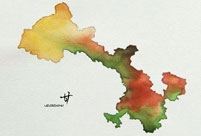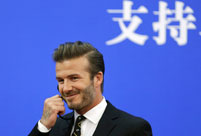 Africans in Guangzhou
Africans in Guangzhou
 Pole dancer shows strength and beauty up in the air
Pole dancer shows strength and beauty up in the air
 College girls call for protection of ecological space on earth
College girls call for protection of ecological space on earth
 Top 10 celebrities driving auto brands
Top 10 celebrities driving auto brands
 10 low-carbon tips to save money
10 low-carbon tips to save money
 Luxury cars make Asia premiere at Auto China
Luxury cars make Asia premiere at Auto China
 Versatile dog
Versatile dog
 Ni Ni covers BAZAAR JEWELRY
Ni Ni covers BAZAAR JEWELRY
 Cherry blossoms reach peak bloom in Washington D.C.
Cherry blossoms reach peak bloom in Washington D.C.
 Top Chinese fashion icons in foreigners' eyes
Top Chinese fashion icons in foreigners' eyes
BEIJING, April 28 -- U.S. President Barack Obama starts on Monday a high-profile visit to the Philippines, the last stop of his four-country Asia swing designed to bolster rebalancing to the region.
Hours before Obama's arrival, Washington and Manila signed a defense accord to enhance their military cooperation, which would allow a greater U.S. military presence in the Southeast Asian nation.
Given that the Philippines is at a bitter territorial row with China, the move is particularly disturbing as it may embolden Manila in dealing with Beijing. A more assertive or even reckless Manila would stoke regional tensions and in turn upset Obama's policy of rebalancing.
It is noteworthy that the Philippines has been a trouble-maker in the South China Sea. It has encroached upon Chinese territory and harassed Chinese fishing boats.
Its repeated provocations triggered a fierce standoff two years ago in the waters off the Huangyan Island, an integral part of China whose surrounding waters have been traditional fishing grounds for Chinese fishermen.
After tensions flared up in 2012, the Philippine government led by President Benigno Aquino turned its back on China. Despite Beijing's continuous efforts to seek a negotiated solution on bilateral basis and equal footing, the Aquino administration betrayed its commitment to talks and went its own way by seeking international arbitration at the end of last month.
By striking the defense deal with the United States at this moment despite domestic opposition, the Aquino administration has made its intention clear: to confront China with U.S. backing.
Such an aggressive posture could easily lead to further provocation. An emboldened Aquino would make an amicable solution to the territorial disputes more difficult, if not impossible, and intensify regional tensions.
It can hardly be said that this kind of scenario is what the United States wants to see with its "pivot to Asia" strategy. Washington has explicitly said that peace and stability in Asia accords with its own interests.
Throughout his four-nation trip in Asia, Obama is trying to strike a delicate balance between its "pivot to Asia" strategy and its ever-expanding relations with Beijing.
While assuring its jittery Asian allies of U.S. commitments, Obama also shattered their illusion that Washington might support them at all costs in their territorial disputes with China. He reiterated that the U.S. government takes no sides in those disputes.
Though its neutrality pledge has yet to be tested, Washington is fully aware that there is no easy fix to Asia's current slew of problems, and that the best way to solve them is to leave them to those countries directly involved.
Interpreting Washington's Asia strategy as a move to contain China is wishful thinking.
Just as Ted Galen Carpenter, a senior fellow at the Cato Institute, warned, it would be Washington's biggest strategic mistake to antagonize two major powers simultaneously when the United States is in the worst confrontation with Russia since the Cold War over Ukraine.
The Pacific Ocean is big enough to accommodate both the United States and China. As the world's two largest economies, they can help build a better future in Asia through cooperation.
Bearing that in mind, Washington should be wary of an emboldened Manila.
 Hand-painted maps go viral online; painter's name remains unknown
Hand-painted maps go viral online; painter's name remains unknown 4th Beijing Int'l Film Festival ends
4th Beijing Int'l Film Festival ends Commando elite specializes in sign language
Commando elite specializes in sign language Man photoshops himself into girlfriend's childhood photos
Man photoshops himself into girlfriend's childhood photos Photo story: Stallholders at Beijing Zoo Wholesale Market
Photo story: Stallholders at Beijing Zoo Wholesale Market Artists on backstage
Artists on backstage Beckham launches fund to support youth soccer in China
Beckham launches fund to support youth soccer in China Cherry blossoms hit peak bloom in Washington D.C.
Cherry blossoms hit peak bloom in Washington D.C. Children in ancient costumes learn Zhusuan
Children in ancient costumes learn Zhusuan Cute Shaolin boy melts the hearts of millions
Cute Shaolin boy melts the hearts of millions Giant panda Sijia is back to happy life
Giant panda Sijia is back to happy life Richest Chinese of 2014: half from the mainland
Richest Chinese of 2014: half from the mainland Chengdu - laid-back lifestyle makes happiest city
Chengdu - laid-back lifestyle makes happiest city The backstage of the Fashion Week
The backstage of the Fashion Week College students in Han costumes
College students in Han costumesDay|Week|Month